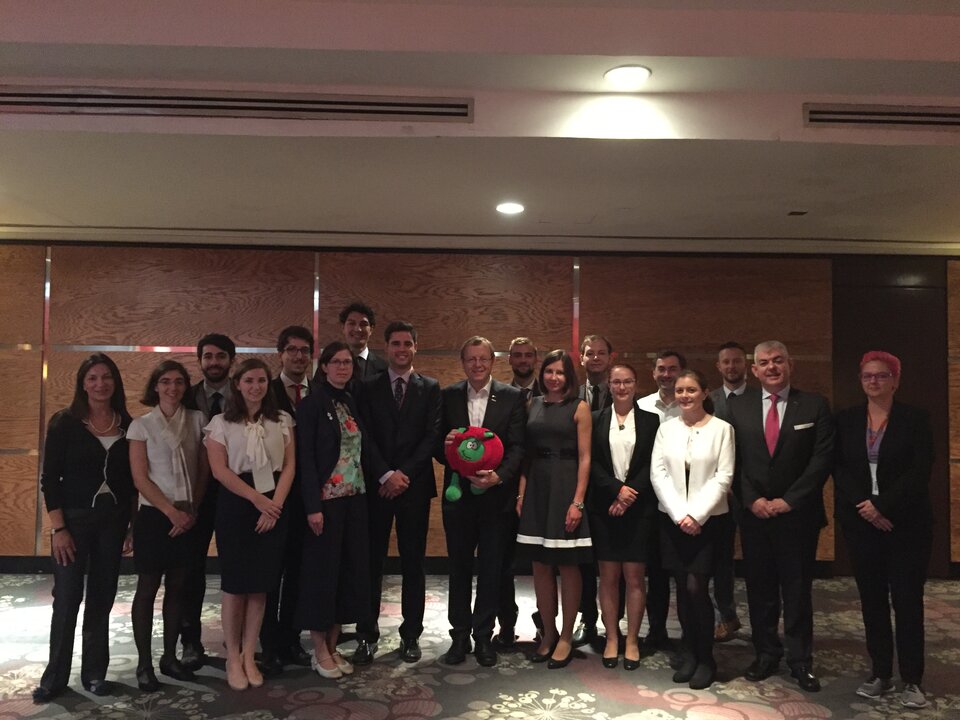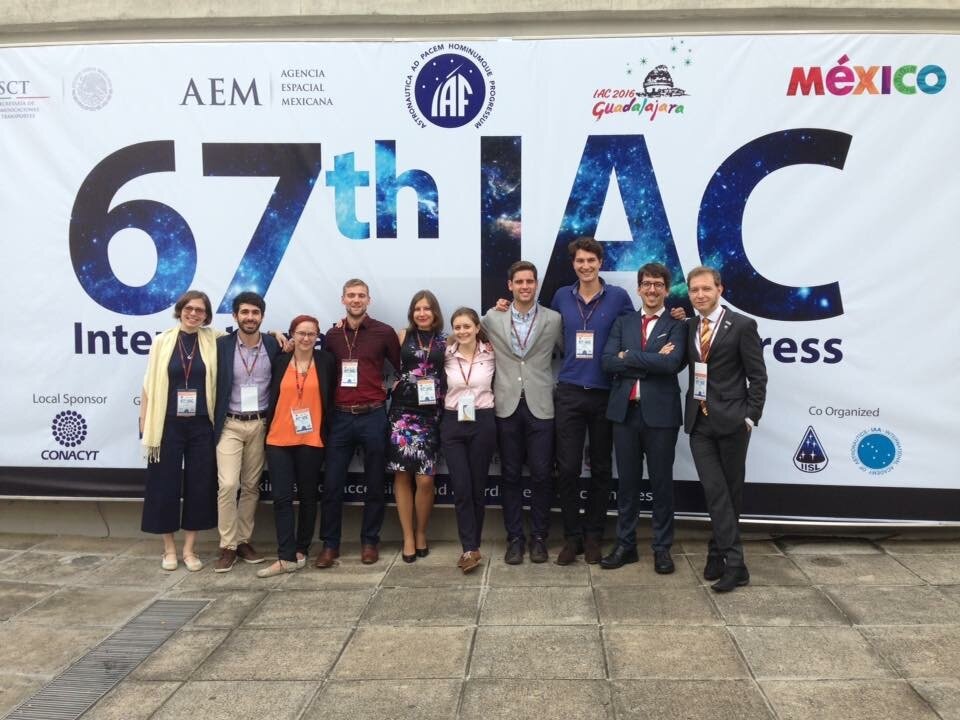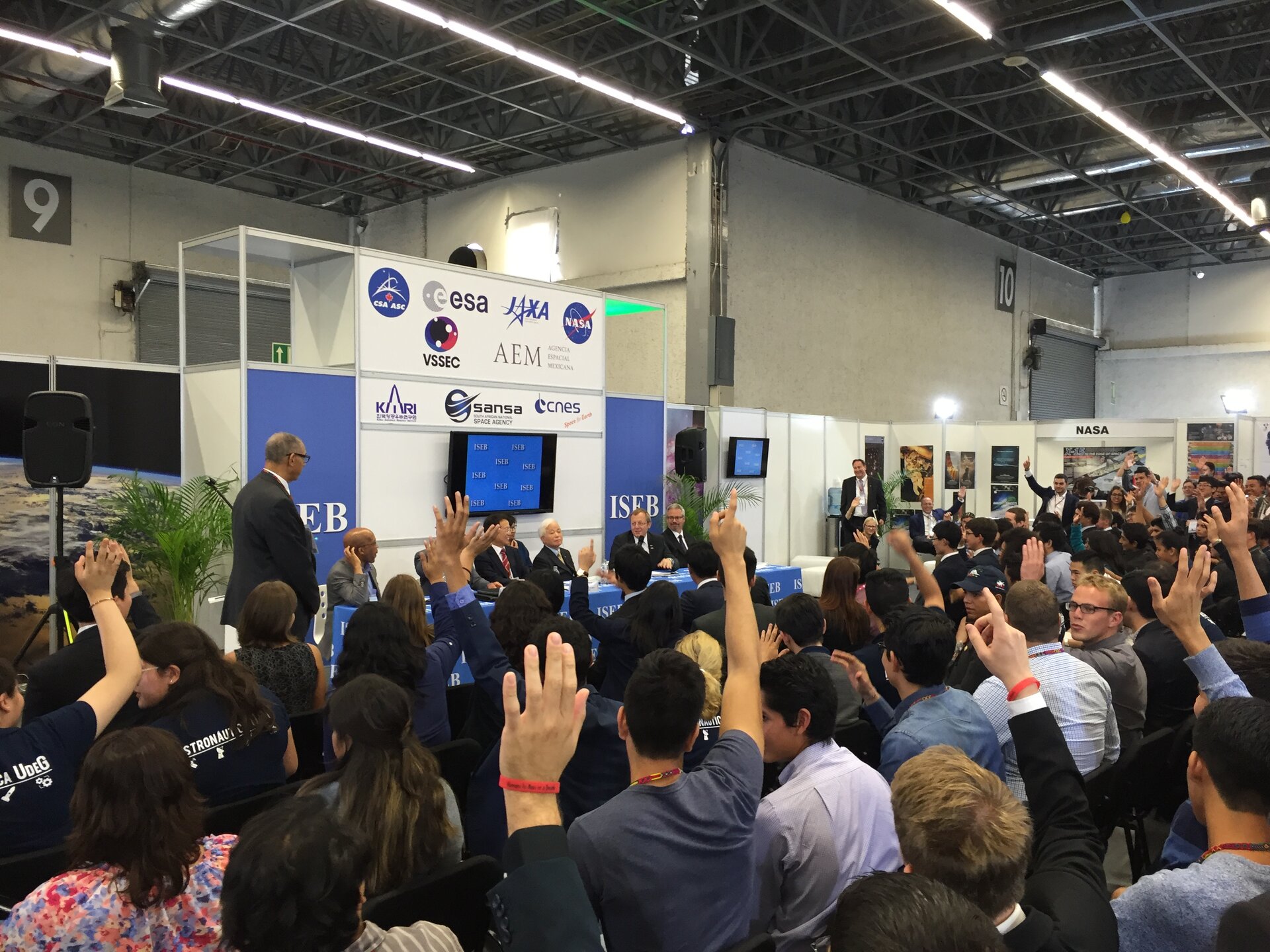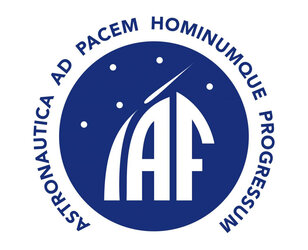ESA Sponsored Students at the 67th International Astronautical Congress in Guadalajara, Mexico
ESA Education has once again offered university students sponsorship to attend one of the most important events in the annual space calendar, the International Astronautical Congress (IAC). This year’s 67th edition of the IAC was hosted in Guadalajara, Mexico from 26-30 September.
Ten university students from six ESA Member and Cooperating States were offered sponsorship to present their individual research in technical sessions at the congress, as well as take part in the IAC Student Participation Programme, organised by the International Space Education Board (ISEB), of which ESA is one of the founding members.
This programme, designed entirely around the students, features special events, presentations, panel sessions, and meetings with senior representatives of space agencies, where a variety of educational and professional topics can be openly discussed. The students had the rare opportunity to be directly exposed to the professional experience of today’s space leaders, thereby gaining invaluable educational insights.
The Student Participation Programme commenced one day before the official start of the IAC congress, with a workshop on cross cultural awareness in an international environment. In this workshop, the sponsored students from each ISEB agency met their peers from around the world and shared interesting facts about their cultures. Following the workshop, the students attended a meet and greet session where they were introduced to the Heads of Education from each of the ISEB agencies.

On the first day of the congress, the Heads of Agency Question and Answer Session took place in the International Student Zone (ISZ), where sponsored students were invited to interact with the ESA Director General, as well as with the Heads of the Canadian Space Agency (CSA), Japan Aerospace Exploration Agency (JAXA), Korea Aerospace Research Institute (KARI), National Aeronautics and Space Administration (NASA), and South African National Space Agency (SANSA). The students’ thought provoking questions ranged widely, from requests for information about specific programs within agencies, to philosophical insights on the future of international collaboration in space exploration.
The second day of the programme brought NASA and the Mexican Space Agency (AEM) together for a lunch session of student presentations in the ISZ. Following the end of the congress’s day sessions, the students convened for a specifically-organised Networking Session with students and staff of the ISEB agencies.
Wednesday carried on with technical presentations and plenary sessions. During this day’s lunch session, ESA and JAXA shared the podium. Presentations began with a talk from ESA Expert, Dr. Victor Demaria Pesce, who reviewed the medical challenges presented by spaceflight and how these challenges may change in the future as human exploration moves beyond the ISS. Presentations from JAXA-sponsored followed for the second half of the session. In the afternoon, students were invited to attend a presentation from the JAXA-sponsored students on Japanese culture and customs.
Thursday began with intrigue as the ESA-sponsored students attended a breakfast meeting with ESA’s Director General, Dr. Jan Woerner. This very informal setting provided ideal environment to discuss topics such as ESA’s preparations for the Ministerial Council, careers within the space sector, ESA’s plans for the extension of the ISS programme, and many more.

The final day of the IAC focused on an outreach activity for two-hundred and fifty local Mexican schoolchildren. The sponsored students acted as space ambassadors and mentors, leading robotics activities for the children, focused on the programming language Scratch. This activity allowed the students to use their own experience to inspire and motivate the children to follow studies in space-related areas.
The students were highly appreciative of their experience in Guadalajara. Some of their thoughts are shared below:
“Attending the 67th International Astronautical Congress has been an incomparable experience, both from educational and personal perspectives. From the personal point of view, being immersed in a multicultural environment of talented and motivated students coming from all over the world and who share the same dreams, ambitions, and passions in space exploration, made me more open-minded and exposed me to a multitude of new cutting-edge space research domains.
From the academic point of view , attending this congress gave me the opportunity to present my research …, strengthen my communication skills, and network with space-professionals which are involved in similar space missions as my research. I learnt from their projects and careers, exposing my doubts in terms of research lines and progression, as well as my future path in the space sector,” said Spanish ESA-sponsored student Alvaro Soria-Salinas.
Italian ESA-sponsored student Mirko Trisolini reflected on his experience, saying, “During the congress I had the great pleasure of being involved in outreach activities, teaching young boys and girls and trying to share with them my passion for space. I never had such an opportunity when I was young and I felt very happy for giving even a small contribution in inspiring future generations of space scientists, engineers, and much more.”
“The IAC was full of inspiring people, interesting talks and events. It was a wonderful personal experience as well as a great opportunity to learn more, meet people in space research and discuss current topics with them. At some times, it felt like witnessing history happen... It is also great to see so much optimism along with the ideas and means for a better future. I will always be grateful to ESA for this opportunity, and I hope I can contribute my bit someday, be it in informing and inspiring, research or elsewhere,” said Czech ESA-sponsored student Julie Novakova.
Background
The Student Participation Programme is an initiative of the International Space Education Board (ISEB). Founded in 2005, the ISEB now has nine members: the European Space Agency (ESA), the National Aeronautics and Space Administration (NASA), the Canadian Space Agency (CSA), the Japan Aerospace Exploration Agency (JAXA), the French Centre National d’Études Spatiales (CNES), Australia’s Victorian Space Science Education Centre (VSSEC), the Korea Aerospace Research Institute (KARI), the South African National Space Agency (SANSA) and the Agencia Espacial Mexicana (AEM).
The 68th International Astronautical Congress will take place from 25 to 29 September 2017 in Adelaide, Australia. ESA’s student sponsorship application will be announced in the first months of 2017.





